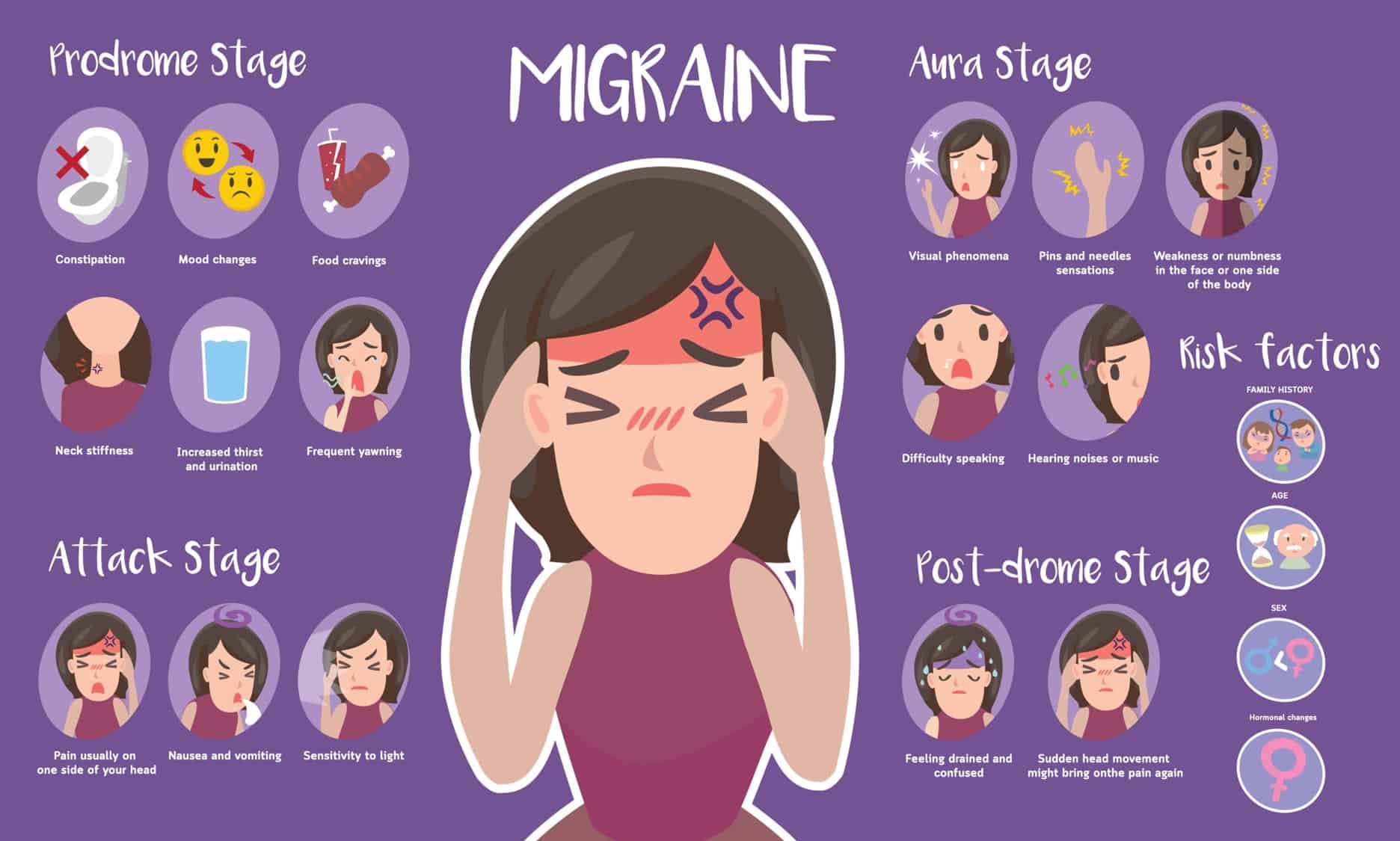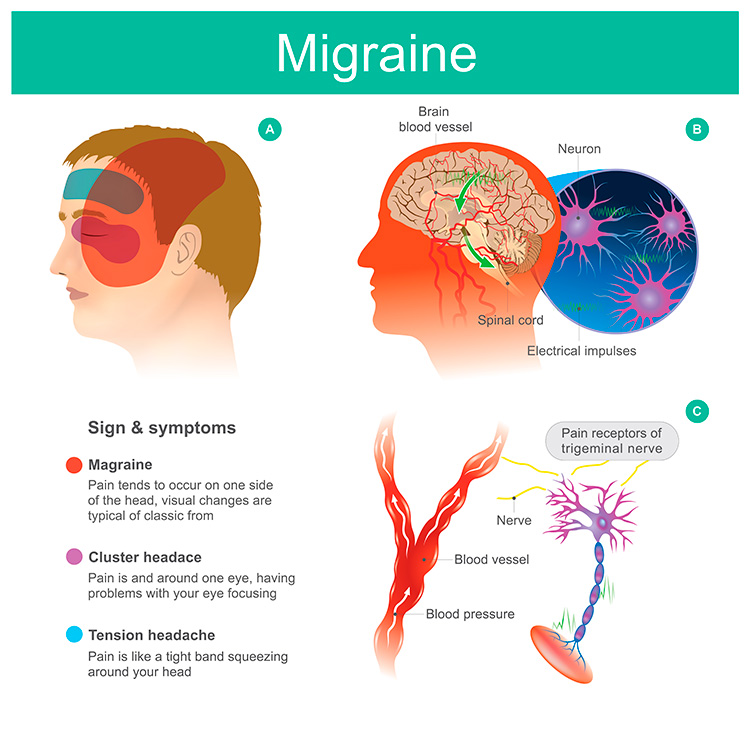 Source: bing.com
Source: bing.comIntroduction
Migraine is a neurological condition that is characterized by throbbing pain, usually on one side of the head, and often accompanied by other symptoms such as sensitivity to light and sound, nausea, and vomiting. Migraines can last for hours or even days and can be debilitating for those who suffer from them. There are several stages of a migraine attack, each with its own set of symptoms. In this article, we will discuss the different migraine symptoms by stage.
Prodrome Stage
 Source: bing.com
Source: bing.comThe prodrome stage is the initial phase of a migraine attack. It can occur hours or even days before the onset of the headache. During this stage, some people experience a range of symptoms including mood changes, food cravings, alterations in energy levels, neck stiffness, and increased thirst and urination. Other symptoms may include fatigue, yawning, and difficulty concentrating.
Aura Stage
 Source: bing.com
Source: bing.comThe aura stage is experienced by around one-third of people who suffer from migraines. It typically occurs just before the headache and lasts from 5 minutes to an hour. During this stage, people may experience sensory disturbances such as flashing lights, zigzag lines, blind spots, tingling sensations, numbness, or difficulty speaking. Some people may also experience motor disturbances, such as weakness or difficulty moving their limbs.
Headache Stage
 Source: bing.com
Source: bing.comThe headache stage is the most well-known phase of a migraine attack. It can last from a few hours to several days and is characterized by throbbing pain, usually on one side of the head. The pain may be accompanied by nausea, vomiting, sensitivity to light and sound, and visual disturbances. Some people may also experience dizziness, sweating, or difficulty concentrating during this stage.
Postdrome Stage
 Source: bing.com
Source: bing.comThe postdrome stage occurs after the headache has subsided. During this stage, people may feel drained and exhausted, or experience a sense of euphoria. They may also experience difficulty with concentration and memory, as well as sensitivity to light and sound.
Conclusion
Migraines can be a debilitating condition for those who suffer from them. Understanding the different stages of a migraine attack and the associated symptoms can help people manage their condition more effectively. If you experience migraines, it is important to seek medical advice from a healthcare professional who can provide guidance and support.
No comments:
Post a Comment